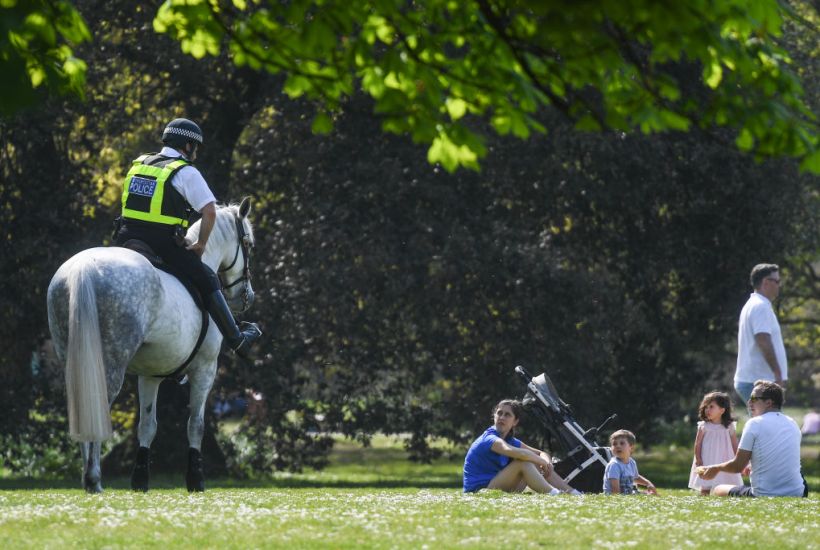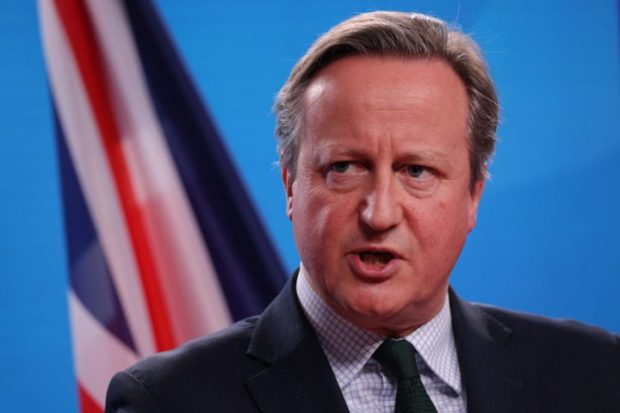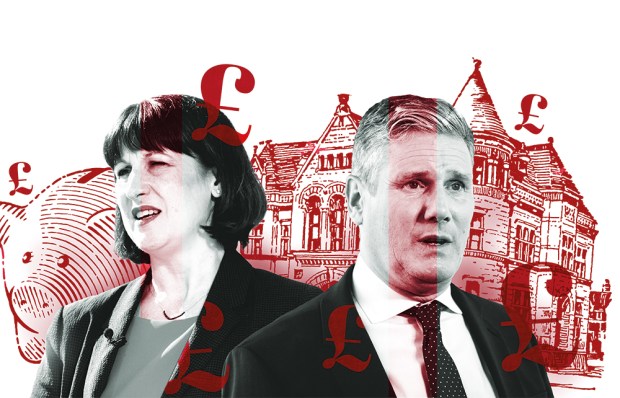Coronavirus is bringing out the best in some public services and the worst in others. I’m still being a snob about clapping for the NHS — it’s not British and you can’t make me think it is — but there’s no doubt health service staff have put in an absolute shift and their unhesitating dart in the direction of danger has been admirable. The police, though, are a more complicated story. The vast majority are doing a fine job under tense circumstances. They are an unarmed constabulary enforcing an open-ended lockdown in the middle of a pandemic.
Still, there have been a number of incidents now that risk chipping away at public support for the lockdown and the police themselves. South Yorkshire Police had to apologise after a ‘well-intentioned but ill-informed’ bobby scolded a family for being in their own front garden, even though that is permitted under the government’s social distancing rules. Neighbouring force Derbyshire said sorry to a Chesterfield man issued a warning for cutting his disabled friend’s grass, despite having remained socially distanced while doing it. A woman travelling through Newcastle Central Station was fined £660 at North Tyneside magistrates’ court only for her conviction to be set aside after police admitted they had misinterpreted the Coronavirus Act. Cambridgeshire Constabulary had to have a word with ‘an over-exuberant officer’ who tweeted that the force was monitoring the ‘non-essential aisles’ in Tesco while Northamptonshire Police threatened to do just that. Chief Constable Nick Adderley warned the public his officers could soon begin ‘checking the items in baskets and trolleys to see whether it’s a legitimate, necessary item’. Ministers were forced to clarify that retailers could continue selling Easter eggs after an industry body said some police had deemed them ‘non-essential’.
This is how you lose the country. This lockdown is wholly dependent on the consent of those being locked down. The police lack the manpower to match the sinister ambitions some seem to harbour. Put simply, if enough people got fed up and started defying the lockdown, officers would struggle to reassert order. That is why those exercising emergency powers must do so with the lightest of touches. The government’s strategy depends upon compliance. Lose it and the consequences will be deadly on a much larger scale.
We are not there yet, at least I don’t think so. The British are no longer a people wedded to individual liberty. The pilgrims took that over with them on the Mayflower. Rather than proud, freeborn Englishmen jealously guarding our liberties, we are a nation of curtain-twitching busybodies would would gladly shop our neighbour for putting the wrong sort of plastic in the recycling bin. Offer the average Brit a police service modelled after Dirty Harry and most would hand over their rights quicker than you could say habeas corpus.
When it premiered in 1971, Pauline Kael called Dirty Harry ‘an almost perfect piece of propaganda for para-legal police power’. The way some officers have responded to the Wuhan virus is a perfect piece of propaganda against handing police additional powers. The Coronavirus Act has teased out in certain sections of the constabulary an authoritarian streak fizzing just below the surface. The more the cops have to apologise for harassing people needlessly, the more the punters will start to have second thoughts about the wisdom of putting aspiring Harry Callaghans in charge of their exercise routines and shopping lists. That lost British impulse of bloody-mindedness in the face of pompous, hectoring authority could be suddenly rekindled.
The danger, then, is as Isabel Hardman alludes to in asking why Downing Street isn’t reining in chief constables. The present lockdown may have to become as stringent as some forces believe or wish it already was. But that option might not be open to ministers if police forces allow their efforts to become defined in the public eye by the power-tripping antics of those who wield their temporary authority like a .44 Magnum with the hammer always cocked. Remember: ‘To secure and maintain the respect and approval of the public means also the securing of the willing co-operation of the public’. The forerunners of today’s chief constables understood this and they must show they do too.
Got something to add? Join the discussion and comment below.
Get 10 issues for just $10
Subscribe to The Spectator Australia today for the next 10 magazine issues, plus full online access, for just $10.




















Comments
Don't miss out
Join the conversation with other Spectator Australia readers. Subscribe to leave a comment.
SUBSCRIBEAlready a subscriber? Log in